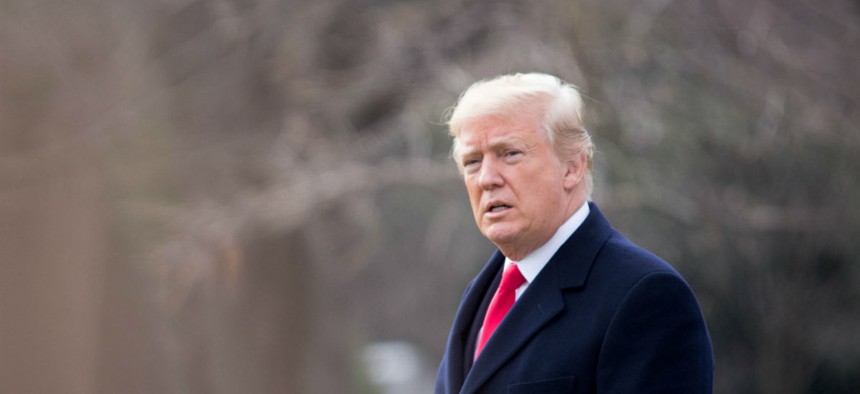
President Trump announced back in February that he wanted to freeze federal pay in 2019. Michael Candelori/Shutterstock.com
Why Trump's Pay Freeze Move Shouldn't Have Surprised Anyone
It sparked outrage, but it wasn't unexpected.
It’s a ritual only a wonk (or a federal employee) could fully appreciate: Every year since 1994, the president, by the end of August, must submit to Congress a plan for paying federal employees in the following fiscal year.
That’s what President Trump did yesterday. This “alternative” pay plan is required under the 1990 Federal Employees Pay Comparability Act (which actually took effect in 1994). Otherwise, the law triggers an extraordinarily high across-the-board pay increase, based on a pay-gap analysis by the Federal Salary Council. The council’s analysis, which sets the gap at 32 percent, is itself “based on a staggeringly complex methodology that cannot be validated,” according to federal pay expert Howard Risher.
Long story short: every president files an alternative pay plan in August. Even the language Trump used in recommending the pay freeze, citing economic hardship, is essentially prescribed by law.
You wouldn’t have guessed any of that based on the outrage on Twitter after the White House released Trump’s plan Thursday. Whatever you think about stiffing federal employees on pay, the biggest surprise was that anybody was surprised.
The White House back in February said it would seek a pay freeze for all civilian employees in 2019. The House endorsed the freeze in July, while the Senate has approved a 1.9 percent increase. Ultimately, Congress will work out its differences in a conference committee and that will determine whether or not feds get a raise.
Trump is not uniquely tight-fisted with federal employees—another point lost in the hullabaloo Thursday. As Government Executive reported in a retrospective of President Obama’s impact on federal compensation: “Federal employees will never forget the three-year pay freeze from 2011 through 2013 under Obama—which Congress also was responsible for.” What’s more, “locality pay, which is a portion of the overall federal raise, was frozen for much of Obama’s time in office, from 2010 to 2015.”







